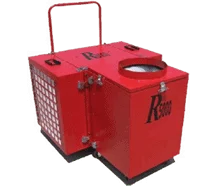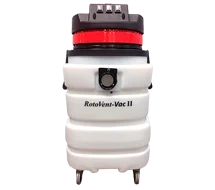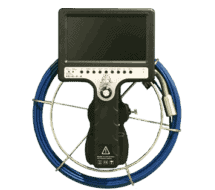
- Michelle Landers
- Blog
Wildfires have become increasingly frequent and severe in recent years, posing significant threats to both the environment and human health. One of the most concerning consequences of these devastating fires is the deterioration of air quality, which affects individuals both indoors and outdoors. The World Health Organization (WHO) has extensively studied air pollution and its health effects, providing valuable insights into the impact of wildfires on our well-being. Additionally, organizations like the American Lung Association have conducted research on the relationship between air quality and human health.
The Impact of Wildfires on Air Quality:
When wildfires occur, they release massive amounts of pollutants into the atmosphere. These pollutants include particulate matter (PM), nitrogen dioxide (NO2), volatile organic compounds (VOCs), and carbon monoxide (CO), among others. These hazardous substances can have detrimental effects on human health when inhaled.
The WHO states that exposure to high levels of PM, especially fine particles (PM2.5), can lead to various health problems, including respiratory and cardiovascular issues. Prolonged exposure to PM2.5 increases the risk of heart disease, stroke, lung cancer, and respiratory infections. The elderly, children, and individuals with pre-existing respiratory conditions are particularly vulnerable to these health impacts.
Indoor Air Quality and the American Lung Association Findings:
In light of the adverse effects of outdoor air pollution, one might assume that staying indoors offers protection. However, indoor air quality can also be compromised during wildfires. The American Lung Association highlights that indoor air can be two to five times more polluted than outdoor air, even under normal circumstances. When wildfires occur, infiltration of smoke particles through windows, doors, and ventilation systems can result in hazardous indoor air quality.
Moreover, the COVID-19 pandemic has heightened awareness of indoor air pollution. With people spending more time indoors and prioritizing ventilation to reduce the risk of viral transmission, the quality of indoor air has gained significant attention. COVID-19 has provided a valuable opportunity for people to recognize the importance of clean indoor air and take measures to improve it.
Improving Indoor Air Quality:
- Maintain a smoke-free environment: Avoid smoking indoors, as it releases harmful pollutants that can further degrade air quality.
- Use high-efficiency air filters: Install high-quality air filters in HVAC systems to trap and remove pollutants from the air.
- Enhance ventilation: Open windows and use fans or air purifiers with HEPA filters to increase air circulation and remove indoor pollutants.
- Monitor indoor humidity: Keep indoor humidity levels between 30% and 50% to discourage the growth of mold and mildew, which can worsen air quality.
- Regular cleaning and maintenance: Vacuum and dust frequently, including your HVAC system, to minimize the accumulation of indoor pollutants such as dust mites, pet dander, and pollen.
Raising Awareness and Taking Action:
Companies have a significant opportunity to contribute to air pollution mitigation and expand their growth by offering a range of indoor air quality (IAQ) services and solutions. In addition to air duct cleaning, there are several other IAQ products and services that companies can provide. These include air purifiers, HVAC maintenance and filter replacement, moisture control solutions, radon testing and mitigation, UV lights. By expanding into IAQ services, companies can diversify their offerings and tap into a growing market demand for cleaner and healthier indoor environments. With increasing awareness of the detrimental effects of indoor air pollution on health, businesses that position themselves as providers of comprehensive IAQ solutions can attract new customers and foster long-term relationships. Furthermore, promoting IAQ services can enhance brand reputation, demonstrate corporate social responsibility, and contribute to a greener and healthier future, all while driving business growth and sustainability.
The devastating effects of wildfires extend beyond the immediate destruction of natural resources and ecosystems. They also significantly impact air quality, both outdoors and indoors, leading to serious health consequences. By understanding the risks associated with wildfire-related air pollution, we can take steps to protect ourselves and our communities. Through increased awareness, collaborative efforts, and individual action, we can strive for cleaner air and a healthier future.
Remember, the well-being of our environment and our own health are deeply interconnected. Let us prioritize clean air, for it is a fundamental right that affects us all.
800-535-3878 | [email protected] | www.rotobrush.com
"*" indicates required fields



























